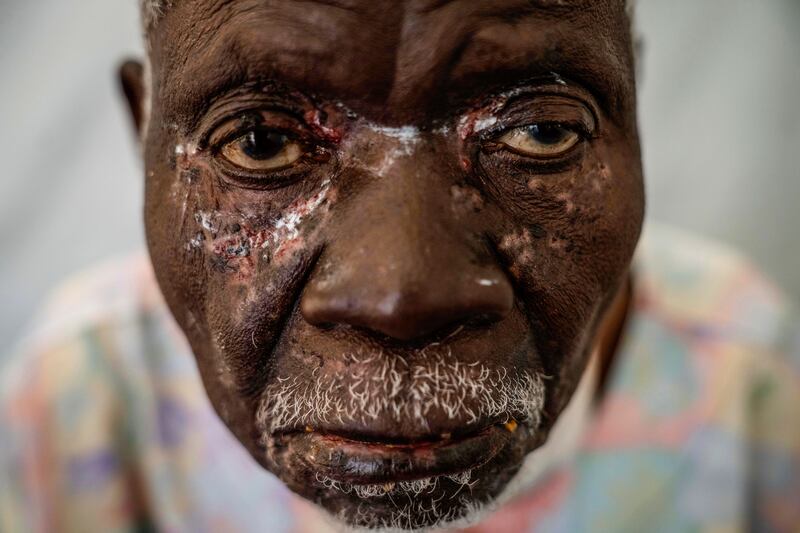Health officials have confirmed a U.S. case of an aggressive new form of mpox, detected in northern California in someone who had recently traveled to eastern Africa, per the California Department of Public Health.
Health officials say the risk to the public is low at this time, but The Washington Post notes that the particular virus strain is deadlier than previous strains.
Mpox is a virus related to smallpox and recent outbreaks in Congo and elsewhere have created enough alarm that the World Health Organization declared them a global emergency in August. At the time, The Associated Press reported that cases had been confirmed among both children and adults in more than a dozen countries and that a new form of the virus was spreading, resulting in more than 500 deaths — a number that has more than doubled.
The Centers for Disease Control and Prevention said the incubation period before any symptoms appear can range from three to 17 days.
Mpox is a zoonotic illness, which means it can spread between humans and animals, and it can cause symptoms that range in severity. The initial symptoms may be fever, low energy, achiness and swollen lymph nodes. After a few days, a rash develops that might be itchy and painful. Symptoms can last as long as four weeks. In severe cases, people can die, though that’s deemed less likely in communities with robust health care.
The disease, rare in most places, is endemic in parts of Africa, where the AP said bites from rodents and small animals have caused infections. The new aggressive form is spread through close contact, including sex. Besides spreading through skin-to-skin contact, it can spread through coming in contact with contaminated materials like linens and toothbrushes.
The announcement from the California public health officials said it’s the first known case of clade I mpox in the United States. A clade can be pictured as a branch of a tree, with a common ancestor and its descendants.

Variations in transmission, severity
The World Health Organization said that more than 57,000 cases of the more aggressive mpox have been confirmed in the past 14 months, most of them in Burundi, Uganda and the Democratic Republic of Congo. As many as 1,200 people have died, including children. Travelers with confirmed cases have been reported in Germany, India, Kenya, Sweden, Thailand, Zimbabwe and the United Kingdom, per a public health alert.
The New York Times reported that “in Germany, Sweden, Thailand and India, the virus was transmitted no farther. In the United Kingdom, the infected individual passed mpox to three household contacts.”
Clade II has been circulating in California and the U.S. since 2022, when a global outbreak was largely driven by male-to-male sexual contact, per the Post. However, “health officials in the current outbreak have identified spread in heterosexual networks, including when male travelers solicit female sex workers in parts of Congo close to other countries. A significant number of cases have been reported in children under 15, many of them showing up at clinics desperately ill, with blisters and fevers, according to health officials and aid workers.”
The Post added: “Health officials and aid workers have said the high number of children with mpox in Congo likely reflects conflict-driven displacement that is forcing children into crowded living conditions, an overtaxed and weak health system, lack of access to disinfection and cleaning supplies, and malnutrition.”
Until recently, clade I cases spread mainly through consumption of contaminated meat or close contact with infected animals and people, the Times said
While noting that clade 1 has historically caused more severe illness, the announcement from public health officials carried a hopeful note: “However, recent infections from clade 1 mpox may not be as clinically severe as in previous outbreaks, especially when cases have access to quality medical care.”
The care in the California case was provided in San Mateo County and the individual is now isolating at home and recovering, the public health notice reported. It added that close contacts with the person are being contacted by public health workers, but found no evidence mpox clade I is spreading in California or elsewhere in the U.S.

Tips to avoid risk
Precautions against mpox infection, which is typically spread through skin-to-skin contact, include:
- Getting vaccinated for those at particular risk.
- Developing symptoms can take 21 days and people who were exposed are asked to avoid intimate contact with others for that length of time.
- Preventing spread if you have mpox, including avoiding contact until the rash is healed and cleaning and disinfecting shared areas in the home. Also notify anyone who might be exposed.
- Not sharing items with someone who has mpox.
- Washing hands often.
- When caring for someone with mpox, use masks, gowns and gloves.
California health officials said that casual contact like sitting near each other at work, while traveling or in school are not likely to pose significant risk.


